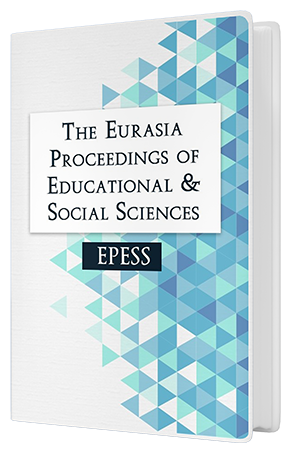EFFECT OF GENDER, AGE AND MATHEMATICS ANXIETY ON COLLEGE STUDENTS’ ACHIEVEMENT IN ALGEBRA
Keywords:
Gender, age, anxiety, mathematics, achievementAbstract
Mathematics is a very important subject. It is the language of science and technology and so it is a force to reckon with in the development of any nation. Several studies on factors that affect mathematics achievement have been conducted. However, studies on factors that affect mathematics achievement among College students in Nigeria seems to be rare. This study therefore sought to investigate the effects of gender, age and mathematics anxiety of College students on their achievement in Algebra. The study adopted an expost-facto design since no variable was manipulated. The participants of the study are mathematics teacher trainees in the Federal Colleges of Education in Lagos and Ogun states of Nigeria. The data for the study was from a questionnaire which elicited information on gender and age of respondents, a mathematics anxiety scale (r=0.82) and participants’ achievement score in an Algebra course coded MAT 111. The achievement score in Algebra is the dependent variable while gender, age and mathematics anxiety formed the independent variables of the study. The data collected were analysed using mean, standard deviation, independent t-test and One-way ANOVA. The results of the analyses showwed average performance in the Algebra course. Besides, the differences in achievement across gender,age and mathematics anxiety groupings (low, medium and high) were all non-significant. Since the participants are on their first semester in the college and their performance is generally on the average, it is recommended that proper orientation be given to new students on how to be high achievers on the programme. Besides, their lecturers should be as simple as possible in their instructions.Downloads
Published
Issue
Section
License
Copyright (c) 2014 The Eurasia Proceedings of Educational and Social Sciences

This work is licensed under a Creative Commons Attribution-NonCommercial-ShareAlike 4.0 International License.
The articles may be used for research, teaching, and private study purposes. Any substantial or systematic reproduction, redistribution, reselling, loan, sub-licensing, systematic supply, or distribution in any form to anyone is expressly forbidden. Authors alone are responsible for the contents of their articles. The journal owns the copyright of the articles. The publisher shall not be liable for any loss, actions, claims, proceedings, demand, or costs or damages whatsoever or howsoever caused arising directly or indirectly in connection with or arising out of the use of the research material. All authors are requested to disclose any actual or potential conflict of interest including any financial, personal or other relationships with other people or organizations regarding the submitted work.




